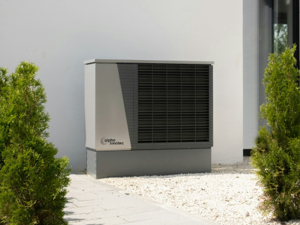Can heat pumps only be installed by an MCS approved installer?

Legislation has changed since this post
On 29 May 2025, new rules on planning came into effect, and some information detailed below has changed. Look out for updated information on this blog soon.This post isn’t about Checkmark’s core market (helping keen DIYers to install an air-to-air mini-split air conditioner or heat pump in their home office, workshop, kitchen etc.). Instead, it’s about a misunderstanding that I often see on DIY websites: that a heat pump must be installed by an MCS approved installer.
This is not the case - a heat pump doesn’t have to be installed by an MCS installer. Even MCS say that 
Confusion
It doesn’t help that the terminology related to heat pumps, air conditioners (ASHP, HVAC, RACHP etc.) isn’t clearly defined. There are different interpretations all over the web. For the purposes of this post: by ‘heat pump’ I mean a ground or air source heat pump connected to a central heating and hot water systems. I.e. the thing the Government would like you to replace your gas or oil boiler with.
Permitted Development and MCS
Further confusion comes from the Government legislation related to Permitted Development 
Development is not permitted by Class G unless the air source heat pump complies with the MCS Planning Standards or equivalent standards.
The ‘MCS Planning Standards’ referred to are MCS 020 
Update 29 May 2025: This standard has been updated to MCS 020 a) Issue 1.1 and the ’equivalent standard’ wording removed from the updated planning. See later blog posts.
There are some important things to note here:
- While the phrase ’equivalent standards’ could be seen as ambiguous, it does indicate that an install doesn’t have to be by an MCS installer. It could be read that someone else can do it as long as they comply with ’equivalent standards’.
- To get an MCS certificate for an install it needs to have followed the MCS Planning Standard. This requires:
~ The air source heat pump product shall be certified in accordance with MCS007.
~ The air-source heat pump shall be installed by an MCS Contractor in accordance with MIS 3005.
~ The installation be carried out in compliance with the calculation procedure contained in Table 2. This refers to the MCS 020 noise assessment. - MCS themselves say that the MCS Certificate is not a mandatory or legal requirement for systems installation
.
So, the key takeaways are:
- You don’t have to use an MCS certified installer - you could just apply for Planning Permission.
- If you want to install a heat pump under Permitted Development you can use an MCS Certified installer.
- You should also be able to install under Permitted Development using ’equivalent standards’ (but read on!).
Permitted Development install without an MCS installer
If you want to install under ’equivalent standards’ without using an MCS installer, there appears to be a lack of clarity. However, it seems to me that:
-
You can check if a product meets MCS 007 performance requirements - they are published
. Many of the requirements refer to British Standards (BS), copies of which are which are expensive to buy, but can often be found on the web. Some manufacturers will state that their product meets the standard (it’s in their interests to do so). It’s worth checking this for the products you’re interested in.
-
MIS 3005 is the property of the former Department of Energy and Climate, although it was written and is currently maintained by MCS. It is quite broad and is applicable to a wide range of heat pump systems, so not every requirement will apply to an installation. However, it should be possible to interpret the requirements on the ’equivalent standards’ basis.
-
The MCS 020 noise assessment is easy to do.
A key issue with this approach issue is, of course, the Local Planning Authority. If someone was to later complain about your installation, the ’equivalent standards’ approach is open to interpretation - meaning that your Local Planning Office may interpret the Permitted Development rules in a different way. Therefore, it is important to check with them before starting your installation.
Please do note that Checkmark aren’t lawyers - this is my researched interpretation.
Why would you want to do a non MCS installation?
Just to be clear, Checkmark aren’t saying don’t go with an MCS installer. There are lots of benefits to doing so, especially if you can take advantage of Government incentives such as the boiler upgrade scheme 
However:
-
There are some doubts being raised about the quality of MCS certified contractors work. There is an interesting article about this at Renewable Heating Hub
.
-
MCS installers are often more expensive than non-accredited installers, perhaps related to the considerable expense of becoming MCS certified. Indeed, there is now an MCS umbrella scheme
which allows non MCS contractors to be sub-contracted by an MCS accredited company. This saves sub-contractors the effort and expense of accreditation. How well monitored this scheme will be has yet to be evidenced.
Final thoughts
It has to be said that there are aspects of this part of Permitted Development legislation that appear dubious. MCS wrote the conditions that required MCS accredited contractors to do the install, which was put into the legislation. The ’equivalent standards’ alternative is at best an ambiguous afterthought.